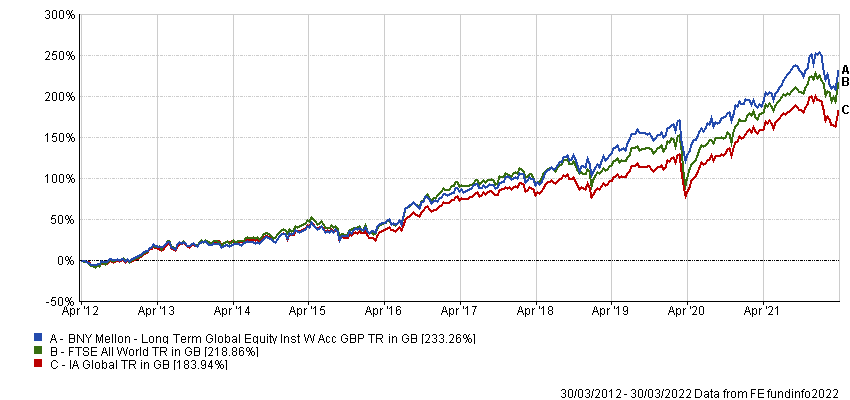Being too slow to pick up bargains, a reliance on your ability to “sell” an investment idea, and a sense of acute frustration when you are overruled are among the disadvantages of taking a team-based approach to fund management, according to Walter Scott’s George Dent.
However, Dent, who is part of the team that runs the £1.7bn BNY Mellon Long Term Global Equity fund, said the advantages of this approach far outweighed the drawbacks.

Dent (pictured) is part of a 21-person team that aims to find quality-growth companies that will deliver strong returns to investors over the long term. The process starts with individuals in regional teams, who use a screen to filter companies that score well on metrics such as high return on equity and capital employed, large profit margins and strong balance sheets.
They will then look back at the business’s performance over a period of 10 to 15 years “ideally back to 2008”, to see how it held up during downturns. If it passes this stage, they will carry out strength, weakness, opportunity, and threat (SWOT) analysis, before meeting with the company’s management team.
Yet while this is the point where most fund managers would decide whether to pull the trigger on an investment, in Dent’s team, this is just the end of the first stage – the next part is selling the idea to colleagues.
“If you can get a buy-in from your regional team, you’ll then progress to the global team. And the final part is the investment executive, which is the most senior people in the firm, which is more of a ratification,” he said.
Dent said that not only does the presentation stage test the convictions of the analyst or manager who put the idea forward, but it prevents a repeat of previous mistakes.
He admitted the process can be slow as it can take a while for an investment to go from the idea stage to the final ratification – and by this point it may have moved to a valuation that means it is no longer attractive.
“But we also find that we end up with long lists of things we know we like, and when there is market disruption we can dust off the file and bring it forward because we’ve already got the approval of the team,” the manager added. “It can be nimbler than it seems.”
Dent said it is important that everyone on the team believes in this way of managing money, although some of them required convincing at first – himself included.
The manager recalled a major construction engineer he came across while he worked on the European team, which was touted as being “the gold standard” in large, fixed-cost outsourced projects.
He said each project could be incredibly profitable – but only so long as the business costed them correctly. What he didn’t realise was that, because these projects took many years to complete, it could take a long time before it realised it had got them wrong.
“And when they go wrong, they go badly wrong,” Dent continued. “One of my colleagues had been burnt by a similar example in the past in a Middle Eastern company focused on oil & gas. But it had bitten off more than it could chew and by the time it was going wrong, it was pretty disastrous. For that reason, he basically said ‘no’.”
Dent didn’t take the rejection well, saying “I sat there spitting blood”. But eventually the decision proved to be the right one, as a similar situation unfolded at the European company within six to 12 months.
“When you’re young and you're keen, invariably you’re going to find it a bit frustrating because you’re going to have ideas which you think are amazing, and you’re going to get people pushing back,” he explained.
“But the longer you’re there, inevitably you get something knocked back which then goes wrong because of the reason that someone warned you about. It is through time that you really do begin to believe in the power of the process and the team.”
Not everyone is convinced by the benefits of a team-based approach. Jake Moeller, senior investment consultant at Square Mile Investment Consulting & Research, agreed it could encourage higher levels of insight and competition, with the result that the whole could be greater than the sum of its parts.
However, he said there was also a risk that accountability for investment decisions could be diluted.
“Where exactly does control lie with a team?” he asked. “Is it the loudest voice? Or is there a ‘first among equals’ who’s a proxy leader without the controls bestowed on a single individual?
“A team approach can make it easier to obfuscate to investors when performance is subpar and more difficult for fund groups to rectify an inherent structural problem in a process if it occurs.”
Performance of fund vs sector and index over 10yrs

Source: FE Analytics
But for the moment, this approach appears to be working for BNY Mellon Long Term Global Equity. Data from FE Analytics shows it has made 233.3% over the past 10 years, compared with gains of 218.9% from the FTSE All World index and 183.9% from its IA Global sector.
The fund has ongoing charges of 0.79%.






